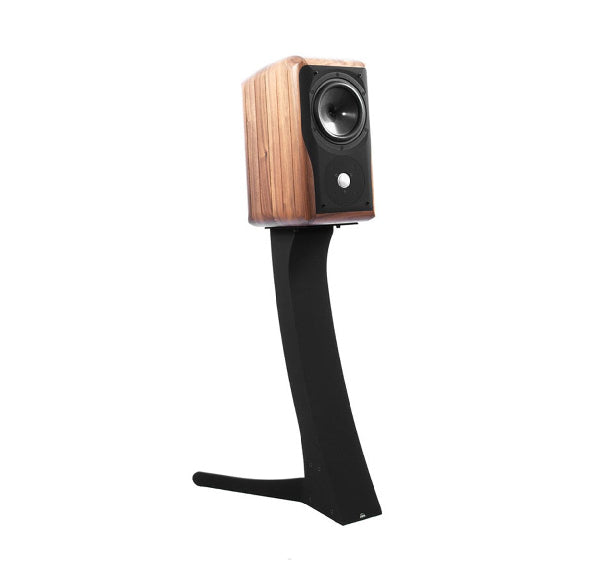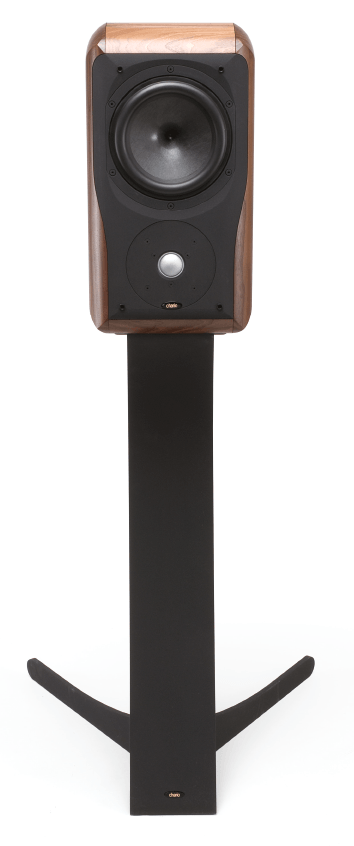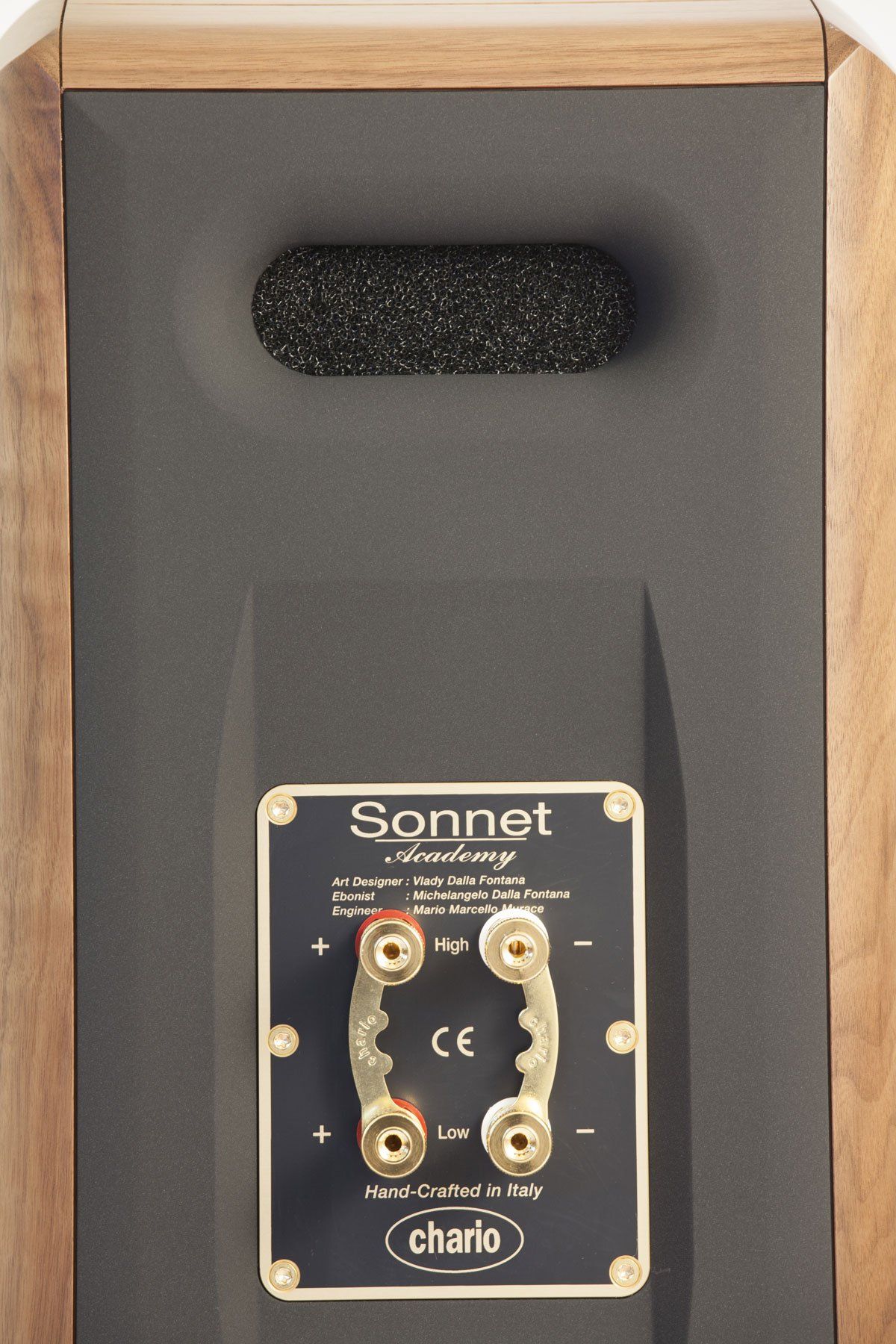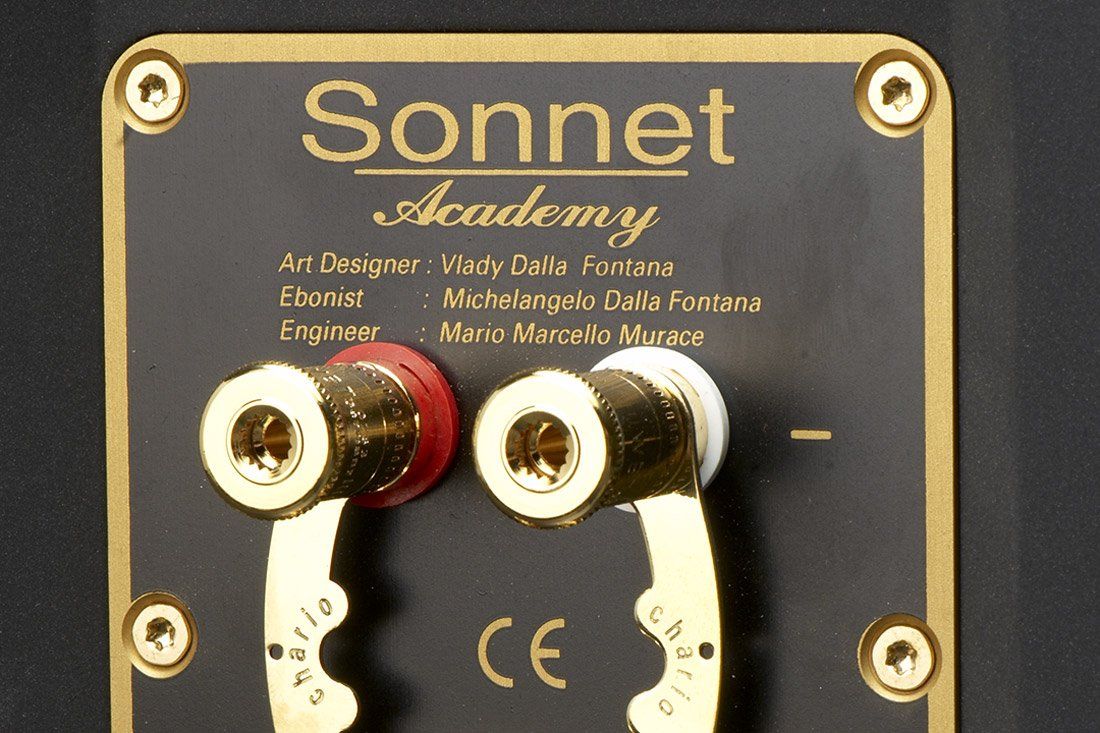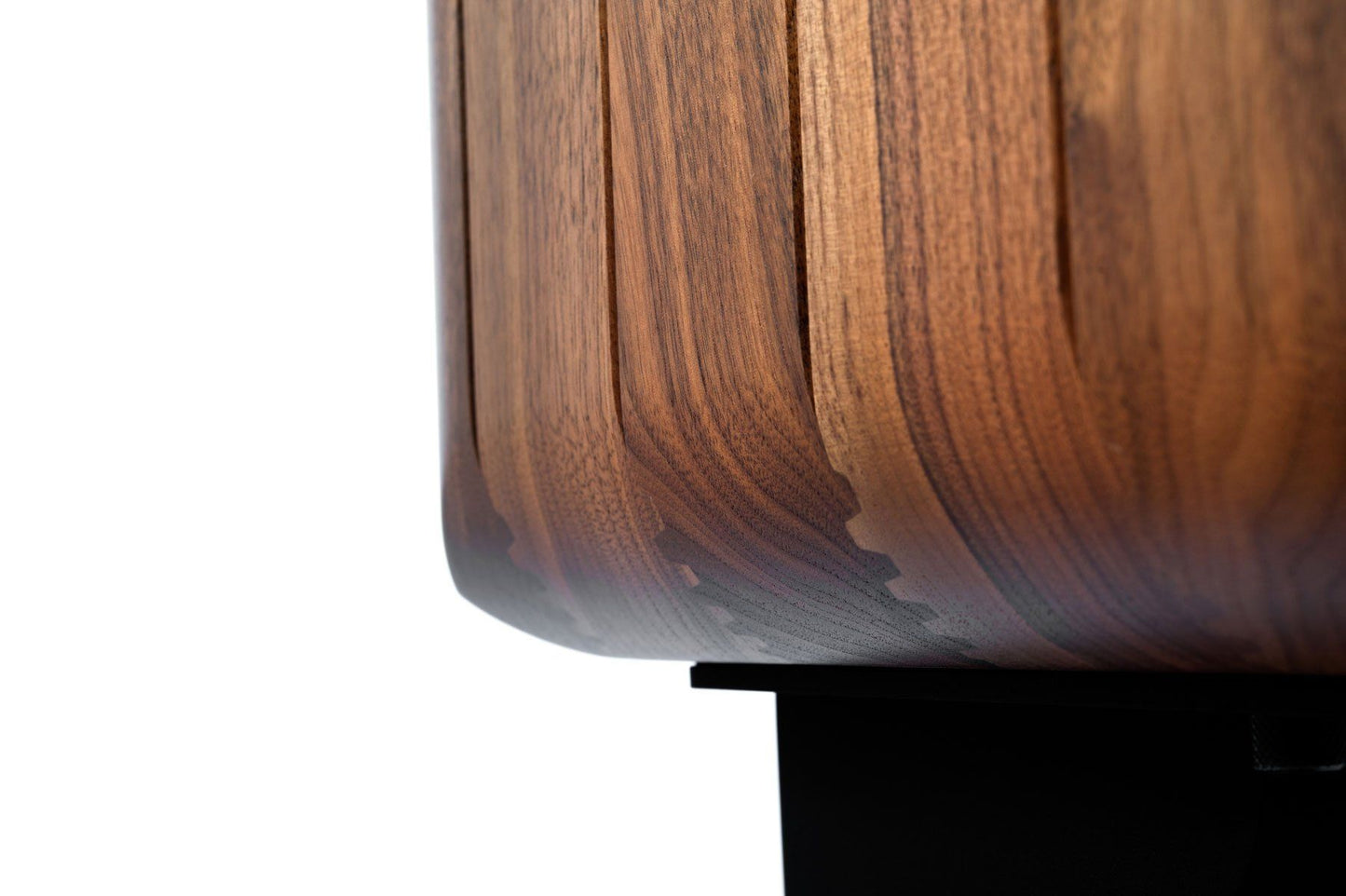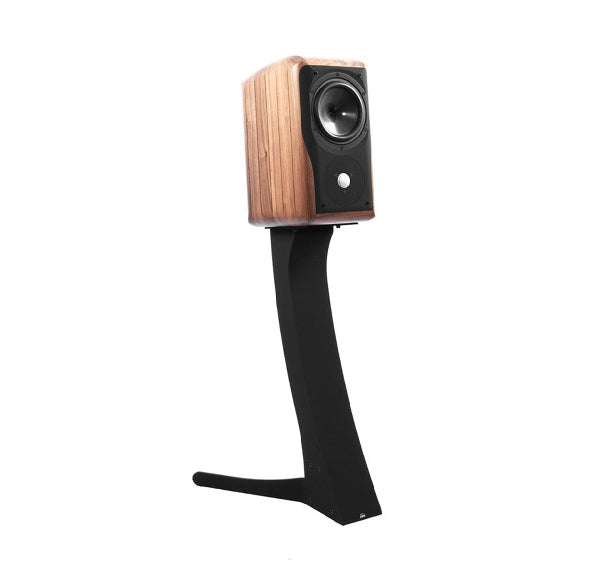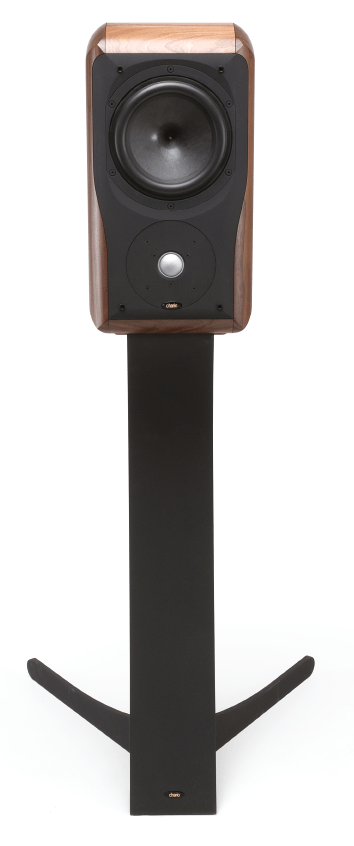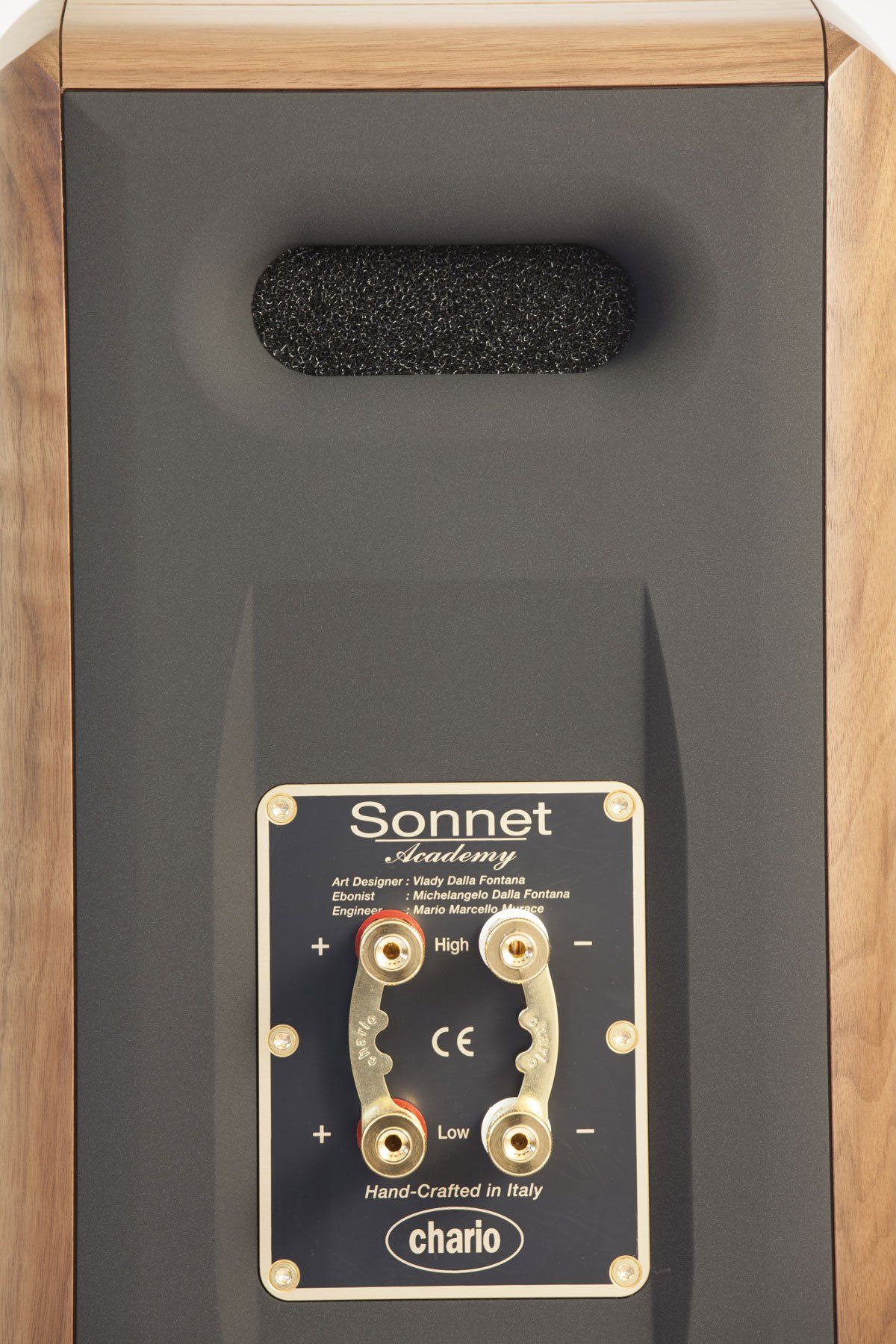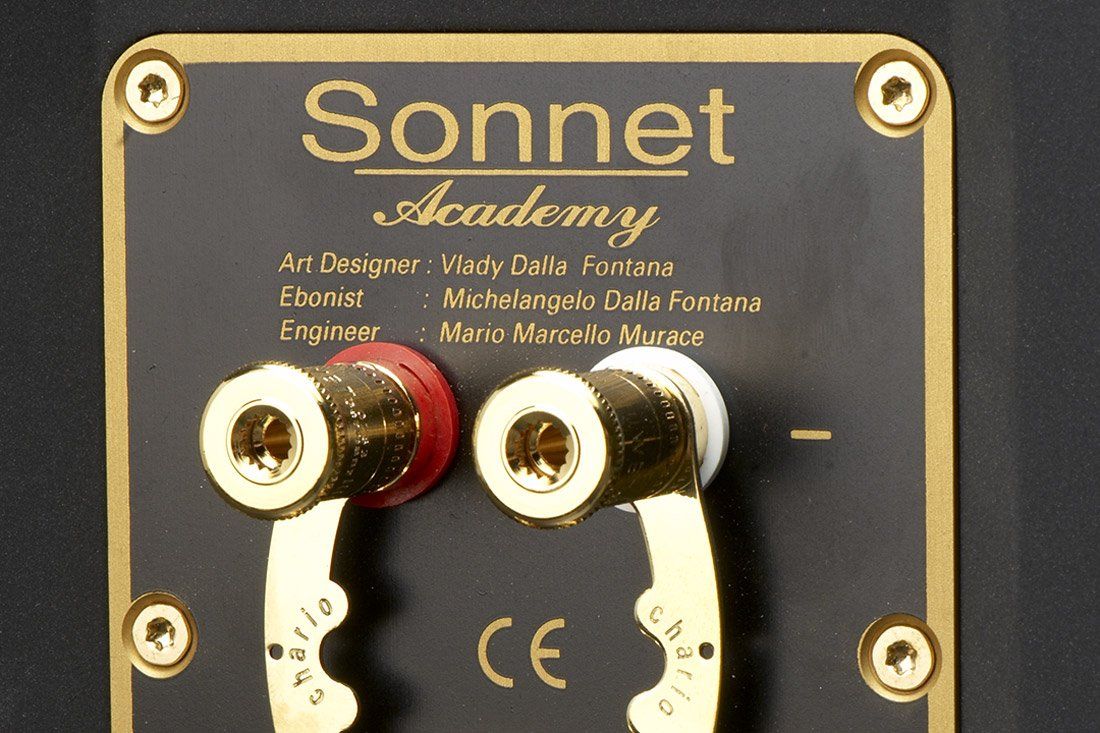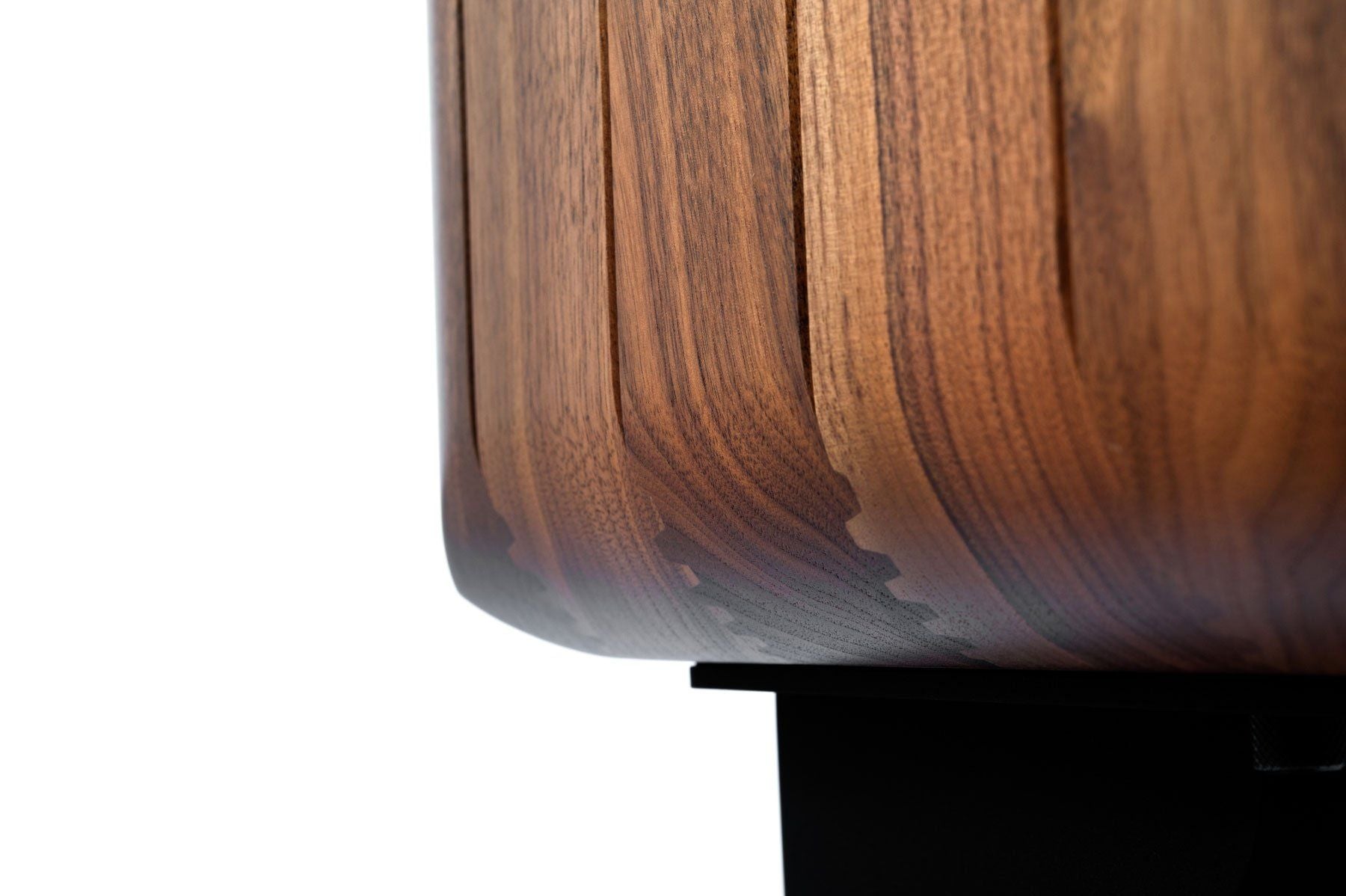Chario
Chario Academy Sonnet Bookshelf Speakers
Chario Academy Sonnet Bookshelf Speakers
Couldn't load pickup availability
ACADEMY
SONNET
2 way Bookshelf
Listening to music on small-sized systems is a reasonable and quite understandable preference, given that they are easily installed in many venues.
Although the compromises required make this sort of design almost impossible, Sonnet offers a solution to bypass the Laws of Physics.
To integrate this strict definition, while we can safely say that we perform miracles to do our best at Chario Loudspeakers, we are nonetheless proud to say that we are strangers to miraculous designs.
Virtual Image
An image speaks more than a thousand words ...
An image speaks more than a thousand words ... impressive Sonnet is eye-catching but appearance takes a back seat to the thrill of listening, as the ear falls under its spell and the speaker literally vanishes to leave room for the most incredible live stage experience you ever try
Reversed Array
Two-way bookshelf systems usually have the tweeter in the upper position of the cabinet.
If the designer is also aiming for time alignment of the two transducers, the plinth must be given a suitable back tilt.
Sonnet fits in with this principle except that the tweeter is underneath. That’s the explanation why the cabinet should be tilted forwards.
Perhaps the solution to the Riddle lies in the Sonnet operating theory of approaching issues that common sense isn’t aware of…
The Riddle
Academy Sonnet
Although the compromises required make this sort of design almost impossible, Sonnet offers a solution to bypass the Laws of Physics.
To integrate this strict definition, while we can safely say that we perform miracles to do our best at Chario Loudspeakers, we are nonetheless proud to say that we are strangers to miraculous designs.
Two-way bookshelf systems usually place the tweeter in the uppermost region of the speaker’s cabinet.If the designer is also aiming for synchronization of the two transducers, the plinth must be given a suitable back tilt.
Sonnet inverts this principle by affixing the tweeter below. Hence, the cabinet should be tilted forwards.
Specifications
Low Frequency Load
- Back-Firing Vented
Vent Geometry
- Half-Exponential Hourglass Type
Configuration
- 2 -way Reversed Array
Drivers
- 1 Tweeter 32 mm SILVERSOFT™ dome NeFeB motor
- 1 Woofer 170 mm ROHACELL® Full-Apex™ Poly-Ring NeFeB motor
Sensitivity
- 90 dB SPL normalized to 1 m / 2.83 Vrms / de-correlated L/R
- pink noise ITU-R BS 1116-1 compliant listening room
Low Frequency Cut Off
- 55 Hz @ -3dB referred to C4 WETS
Xover Frequency
- 1180 Hz
Alignement
- LKR4 Derived (Δf= 45°)
Rated Impedance
- Modulus 4 Ω (min 3.0) Argument ± 36°
Cabinet & Dimensions
Cabinet
Solid walnut and HDF. The structure made by one cabinet containing one subwoofers and one tweeter
Size & Weight445 x 235 x 340 mm (H x W x D) / 14 Kg
Dedicated Stands
Weight
13 kg
Size
750 x 540 x 460 mm (H x W x D)
Finish
Iron black anodized iron (Top Plate & Legs)
Varnished HDF (central section)
Acoustic Environment & Amplification
Speakers Orientation
Speakers should be tilted inward facing the listener
Listening Distance
Optimum speaker-listener distance > 2.5 m
Listening Layout
A carpeted floor in front of the speakers is recommended
Side and Back Walls
Should be at least 1m away from the speaker front baffle
Suggested Amplifier
Rated for 120 W/4Ω Average Power
Share
